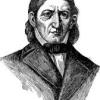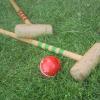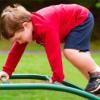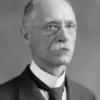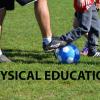Popular Categories
Health Issues
Children move through a developmental progression in the acquisition of motor skills. There are four phases of motor development: the reflexive movement phase, the rudimentary movement phase, the fundamental movement phase, and the specialized movement phase. The fundamental movement phase occurs between the ages of 2 and 7 as children gain control over their gross motor and fine motor skills.
The formal operational stage is the last of four stages proposed by Jean Piaget to describe the cognitive development of infants, children, and adolescents. The formal operational stage occurs with children from 12 years into adulthood. Emerging abstract thought and hypothetical reasoning mark this stage of cognitive development.
Emotional development refers to the ability to recognize, express, and manage feelings at different stages of life and to have empathy for the feelings of others. Emotional development is largely affected by relationships with parents, siblings, and peers.
Peer pressure occurs when an individual experiences persuasion to participate in the same activities as those in their peer group, or to adopt similar values, beliefs, and goals as the group. For a child, their peer group is usually, but not always, of the same age group.
People
Johann Heinrich Pestalozzi was a social and educational reformer and writer in Europe during the late 18th and early 19th centuries. He believed that society could best be changed by education and that reform began with assisting the individual students to help themselves.
Friedrich Froebel was truly a pioneer in early childhood education. He established a new type of school for three and four year old children in 1837, which he called a child's garden or kindergarten. Prior to this there had been no educational training for children under the age of seven.
Play
The game of Croquet is played by hitting a ball through a series of wire hoops with a mallet. As a fun backyard activity for children and adults alike, this game has been popular in the United States since its introduction in the mid-1800s.
The definition of coordination is the ability to develop patterns of movement efficiently integrating visual information with the movement of the limbs. In children, coordination of motor skills develops as the child ages and experiences new activities.
Joseph Lee began life in 1862 as the son of a wealthy Boston family, and through a lifetime of leadership, research, writings, and philanthropy, he became known as the "Father of the Playground Movement." A contemporary characterized Lee's work with schools, playgrounds, and recreation with these words: "Joseph Lee had constructive imagination. After he had backed his vision with money, persistence, and persuasion, the United States was no longer the same."
Marcus Veerman, an Australian teacher, arrived in Mae Sot, Thailand in 2008 to build classrooms. Instead he found the greatest need was to build playgrounds. Marcus founded the not-for-profit organization Playground Ideas (formerly, Go Play!) to design and build play spaces in developing countries by using local materials, labor, and community involvement.
Physical education is an educational process of learning to develop specific knowledge, skills, and understanding to promote physical competence. The basic aim of physical education is to set aside daily a portion of the school day devoted to large-muscle activities that increase movement skills, enhance physical fitness, and positively influence the cognitive and affective development of children.






